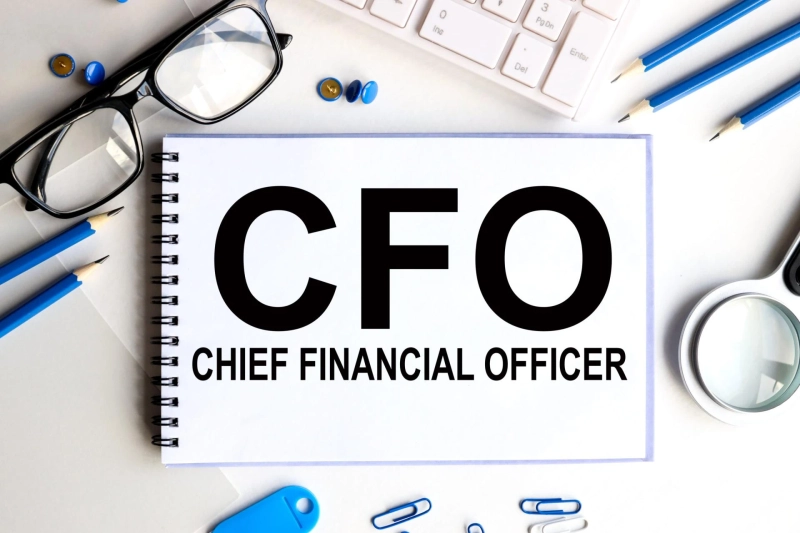The CFO career path is meant for ambitious individual who want excel in their career. If one wants to become a Chief Financial Officer (CFO) then they must have education and career goals high on their list of priorities. But one must be ready with some strategic plans to achieve their goal, though and there are ways to fast-track one’s goals.
From attaining the right education to making the accurate connections, this c-suite role is about leadership, power, strategy, and financial acumen. The CFO salary reflects the high level of responsibility as well as influence. If one possesses the skills and experience then CFO can be a lucrative career, which is full of exciting challenges and several growth opportunities.
In this article, let’s die deeper and know about how to become a CFO, role and responsibilities of this c-suite role, and more.
The one in five of current CFOs exceed CEO expectations for contribution to short-term financial performance and promote organizational behaviors that results in sustained top and bottom-line growth.
According to survey from Gartner, 100+ CFOs worldwide and found the top level CFOs become more customer-oriented, develop constructive tension with the CEO and board, implement financial leadership principles to time management and work closely with the business.
How to become a CFO?
Any professional journey demands to undergo a series of prerequisites. This begins with the education, skills and experience, but also consists of many well-planned moves. For example, several people who work in accounting fields on an executive level possess a certification or other business credential. So one should be aware of each certification is currently booming in the market and they must enroll in it.
· Education
One of the most essential requirements for CFO career path education and degree. Taking up a specialization in accounting or finance is great idea. Most aspirants with business degrees won’t go on to become a CFO. A few do pursue Master’s of Business
Administration (MBA) with a specialization in accounting/finance, or a Master’s of Science in Finance (MSF), which can be an exception that gets to this c-suite role.
One will get more study time with relevant concepts and skills. Apart from that an exposure and opportunity to develop a network of faculty members and peers who are on the same track, most probably in the same industry. These two factors can prove invaluable when an individual strikes the job seeking phase of their how to become a CFO journey.
· Experience
Having a degree is going to be very helpful in accounting or finance. But it should be accompanied with the right experience if an aspiring individual aims to work the way up the ladder. CFOs are required to be more than master management accountants. They are constantly in the decision-making role in several fields, which are diverse as ITHR, investor relations, supply chain, operations, and many more.
Plan CFO career path that challenges oneself. Develop end-to-end knowledge in a diverse body of business and the ability to implement it in a better way. Learn the lingo, nuances, concepts, skills, and trends of the industry in which one wants to work for.
· Certifications and Skills
Landing up in a CFO role is a long-term commitment that demands demonstrated abilities. In addition to college and possibly graduate work, it is highly recommended that professionals who want to become a CFO and are seeking ways for how to become a CFO must choose an accounting certification from the most-reputable, globally recognized certification bodies. As they offer great expertise in financial management, strategic decision-making, and managerial accounting.
Start sharpening skills that helps to communicate well, articulate objectives, cast vision, and manage projects which will the difference between the current on-going competition. According to Gartner, “80 percent of CFOs have strong relationships with the CEO; only 30 percent of CFOs frequently change their CEO’s mind on major issues. Great CFOs influence their CEOs and build strong CEO-CFO relationships.”
CFO Role and Responsibilities
The CFO of an organization has primary responsibility for the planning, implementation, managing and running of all the finance activities such as business planning, forecasting, budgeting and negotiations. They also interact with many members of an organization both senior and junior levels. A CFO role and responsibilities are:
Offering leadership, direction and management to the teams of accounting and financeGiving strategic recommendations to the CEO or President or Board of Directors or members of the executive management teamHandling the processes for financial forecasting and budgets, and taking care of preparation related to all financial reportingSuggesting on long-term business and financial planningEstablishing and building relations with senior management, stakeholders and external partnersReviewing all formal finance, HR and IT related procedures

